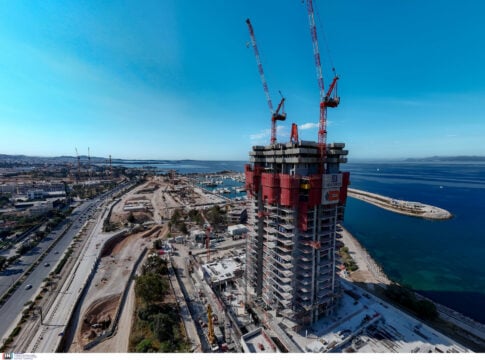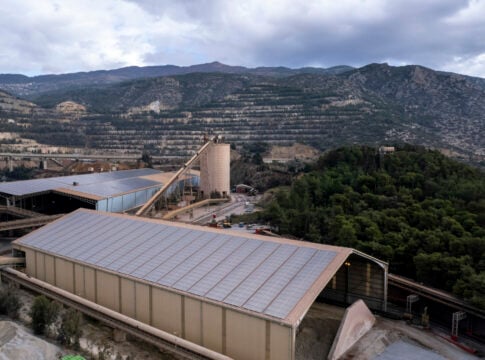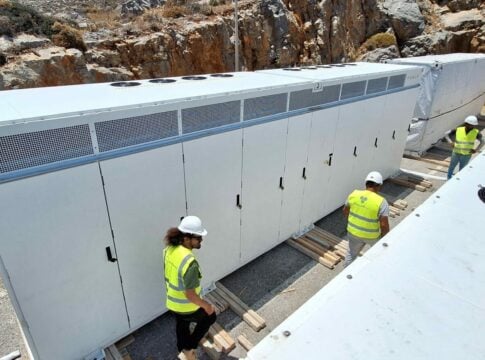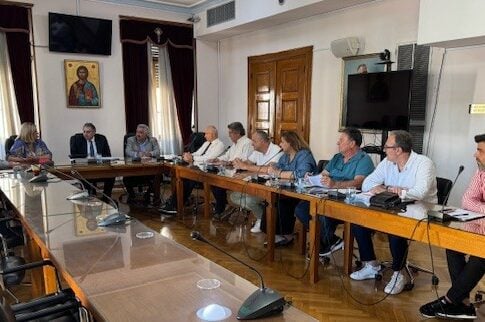Center-right New Democracy (ND) leader Kyriakos Mitsotakis stayed “on message” Tuesday evening, kicking off his official campaign tour in the western port city of Patras by promising that the first two ministerial decisions in a new ND government will be to finalize the privatization at the long-delayed Helleniko site.
Mitsotakis and New Democracy are currently ride high after consecutive election victories in the European Parliament and local government elections, with the emphasis now being on avoiding complacency ahead of the July 7 snap election and to achieve an election performance that will give the party a majority in Greece’s 300-deputy Parliament.
In addressing supporters in an outdoor rally at the historic Achaia Clauss winery, the pro-reform and pro-market Mitsotakis said the “key” to his party’s policy will be strong economic growth on a path towards a fully independent Greece.
“It’s inconceivable to discover forests at the Helleniko site or for all of Piraeus to be declared an archaeological site,” he said, referring to two recent and very high-profile examples of obstructionism by Greek bureaucrats.
The first decision was issued by a regional forestry service director, based in the congested port city of Piraeus, who relied on 1930s era photographs of brush-land and a few rows of evergreen trees to declare portions of the now disused Athens airport at the Helleniko site as land designated as either forested or up for reforestation.
Helleniko is billed as one of the biggest “green field” real estate projects in Europe, and the biggest privatization in Greece, euro for euro.
The other instance was the recent designation of three-fifths of Piraeus as entailing an “archaeological interest”, meaning stricter building codes and land uses. Piraeus is a large and congested coastal municipality in the greater Athens area that hosts the country’s biggest and busiest ports and some of the biggest industries.
The latter decision, later approved in part by the relevant culture ministry, was taken by members of the powerful Central Archaeological Council (KAS), which falls under the jurisdiction of the ministry.













